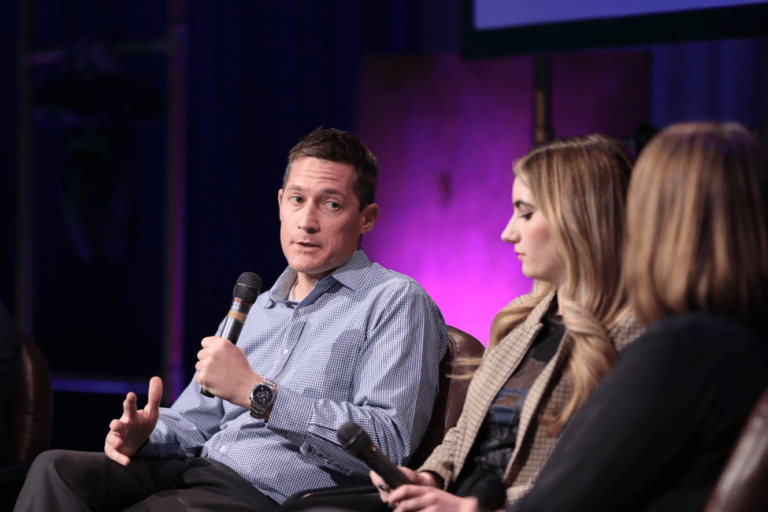MSU alumnus Kyle Andrews details the influence of social media on modern world behaviors
Instagram has been a titan in the social media wave since its creation in 2010, allowing users to share photos and influence with their friends and connections. Kyle Andrews is a social scientist here, at one of the world’s most influential companies--and a good one at that.
A graduate of MSU’s Ph.D. program in Communication, Andrews studies the reactions to new Instagram features and user experiences.
“We really need to think about how people are influenced and how complex it is to change your behavior when it’s rooted in something,” Andrews said. “I got super interested in how this actually happens, how it is studied and the literature on behavior change.”
The Rise of a Social Scientist
Andrews previously worked with several consulting firms, always interested in collecting information on marketing tactics and influence. He moved from Chicago to D.C to Virginia, before finally landing in New York.
As he moved to various firms, he dipped his toes into several different forms of data collection and user research. In D.C., he worked with new immigrants to improve their experience of gaining U.S citizenship. He sent out phone and email surveys to people at different points in the process called “touchpoints.”
Yet, his interest in human behavior was fostered during his time at the Department of Energy. He had to use different marketing tactics in order to get consumers to save energy. He drew upon his knowledge of human behavior to target messages to his audience.
This curiosity led him to Michigan State University and followed long after earning his doctorate in Communication. His previous experience with working in the private sector gave him the confidence to get back to work after graduation.
“The research methods and statistics that you learn at Michigan State are extremely strong, even compared to other Ph.D programs. The focus they put on measurements and methods I think is incredibly helpful. The skills you have and the kinds of experiments and surveys you run and the statistics that you can do--those are like tangible and concrete.” Andrews said. “I think people undersell that. Going into the teaching industry or doing research, those skillsets are really rare.”
After graduating from the doctorate program in the Department of Communication, Andrews went back into industry and found himself at Instagram’s doorstep. After taking on Facebook as a client, they wanted his help in New York to study the power of influence and identify ways to better serve users.
Investigating the Role of Influence on the Human Mind
Now, Andrews gets to explore the human mind through the screens of his users’ phones. The issue of self-image arises when talking about social media and its influence on youth.
“Your conception of self and everything really is driven by how you stack up to other people. At its core, to hear what people have done, and a key aspect as to how we form our identity and think of ourselves has gone on forever,” Andrews said. “I think that there’s the question. In what ways do the internet and social media amplify that? Or distort it?”
As part of his work, he gets to ponder the future of social media.
“When a social network is so big that it’s everyone you’ve ever met, you’re more hesitant to share personal information,” he said. “We want people not to feel self-conscious or nervous about sharing while our platform keeps growing.”
The Promising Future of Social Media
Along with a team dedicated to the wellbeing of social media users, Andrews has noticed certain psychological trends related to self image and the introduction of new features. He considers it important to study the interaction effects between consumer and product. Every new addition changes what people were used to before.
“We’re adding in this new function that allows people to accomplish different jobs,” said Andrews. I look at how that affects the overall perception of the app? What does that do to the overall uses and perceptions of the feed?”
Andrews credits Michigan State, and more specifically ComArtSci, for giving him the tools he needed to research and learn effectively. The university’s focus on both quantitative and qualitative research gave him an impressive skill set that he feels is important for researchers to possess and to show off to potential employers.
By John Castro & Nicole Szymczak
